- Wednesday, 11 February 2026
Rumour, Reputation And Ruin
Poet Bhupi Sherchan’s poem ‘Yo Hallai Hallako Desh Ho’ (It’s A Country of Rumours) was published in 1969. His analysis of the Nepali society has passed the test of time. Gossip is an entrenched trait of homo sapiens, inherited and maintained even today, and is likely to continue. So, Nepalis are not an exception to it, and they willingly buy into gossips which turn out to be rumours. Nepal’s political history has been tainted by conspiracies and massacres driven by lust for power. It may be one of the reasons that Nepalis link every unpleasant incident to one conspiracy theory after another, and there is no dearth of audience.
Types of rumour
Kathleen Fearn-Banks, a crisis communication expert, defines rumour as ‘information passed by word of mouth and electronic communications with no verification of fact and no credible source. Rumours can be absolutely false or partly false, or they can be undeniably true or premature facts. Crises can, and often do, begin with rumour.’ According to her, there are six types of rumours. Intentional rumour is spread to achieve a purpose, and the financial community thrives on it. Premature fact rumour is an early version of what will eventually become the truth. Malicious rumour is started to damage competitors’ reputation, which may or may not be true.
Outrageous rumours are so unbelievable that people react by saying, "It has to be true!" Nearly true rumour is partly true. People attach credibility to a part of the story, and then conclude that the entire rumour must be true. Birthday rumour continues to emerge over and over again. Rumours, whether personal, communal or political, misinform and mislead people, fuel violence, damage reputation, destroy property and environment, even cost lives and leave a scar on society and on a nation.
Rumour-fuelled incidents have caused loss of lives and property, and ruined many individuals’ and companies’ reputation. According to sources, in India in 2019, viral messages warning about ‘child kidnappers’ spread across WhatsApp groups. Villagers, believing the rumours, lynched dozens of innocent people suspected of being abductors. In Myanmar, rumours circulated on Facebook in 2017 that Muslims were plotting against Buddhists. This fuelled communal riots, mass displacement, and killings of Rohingya Muslims. In the US, a rumour claimed a Washington D.C. pizzeria was running a child-trafficking ring. A man, believing the rumour, stormed the restaurant and opened fire in 2016.
A widely circulated text message claimed that drinking salt water could prevent Ebola. Many people tried it, leading to hospitalisations and several deaths in Nigeria in 2014. In Pakistan, Mashal Khan was beaten to death after false rumours that he had posted blasphemous content online in 2017. In Sri Lanka, anti-Muslim rumours spread in 2019, which alleged Muslims were sterilising Sinhalese women through food and medicine, fuelling riots, arson, and loss of lives and property.
Nepal is a hotbed of unfounded rumours. Many Nepalis resort to acts of irresponsible killing of fellow countrymen, tarnishing the national image and damaging property and the environment. The cumulative loss is serious, irreparable and hefty. During the popular movement of 1990, a seasoned leader admitted that they blamed a particular district administration for embezzling millions of rupees. Later, they knew that the district’s total annual budget was less than Rs. 10 million. Another most-hyped accusation was that the former queen, nicknamed ‘Pampha Devi’, had siphoned millions of rupees to a Swiss bank, and if the amount could be recovered, each Nepali, out of 18.5 million population, then, could get at least Rs. 100,000.
During the decade-long Maoist insurgency, more than 17,000 people were killed, numerous were injured, maimed and disappeared, and property worth billions of rupees was destroyed and the environment was damaged. Many people were killed and punished just because they were suspected of being informers. The ‘Hrithik Roshangate’ is the infamous rumour that sparked violence, damaged property, and discredited Nepal and Nepalis globally. It is a classic case of how a rumour, without verification, can spiral into widespread violence. In December 2000, a false news report began circulating in Nepal that Bollywood actor Hrithik Roshan had said in a TV interview that he ‘hated Nepal and Nepalis.’
The rumour spread quickly through word of mouth, FM radios, and vernacular newspapers. The unwise Nepalis took to the streets in Kathmandu and other cities, vandalising Indian-owned businesses, and setting vehicles with Indian license plates on fire. In the aftermath of 2015 Gorkha Earthquake, misinformation spread about aftershocks and imminent floods, which created mass panic in already traumatised communities. In 2020, during the early months of the COVID-19 pandemic, rumours spread that coronavirus was a ‘foreigners’ disease’ or that certain ethnic groups were immune.
No grain of truth
On September 9, 2025, during the Gen Z-led revolt, key government institutions, private businesses and personal houses were ransacked and set ablaze. Many innocent people were targeted. The house of Hitendra Dev Shakya, former Executive Director of Nepal Electricity Authority, was burnt because he was rumoured to be the brother-in-law of KP Sharma Oli. Ullens School suffered the gravest devastation. Eyewitnesses confirmed that a large number of mature individuals armed with iron rods, hammers, and petrol stormed the school premises, ransacking and burning nine school buildings and 83 vehicles, believing the rumour that it was owned by Arzu Rana Deuba.
Ullens, a non-profit institution founded by foreign philanthropists, follows a model that collects fees from the rich and provides free education to the poor. Arzu Rana Deuba was just the chairperson on its board. None of the above rumours contains a grain of truth. And these are merely the tips of the iceberg of how rumours can ruin individuals, communities and countries. Mostly, rumours trigger violence, destroy the reputation of people, organisations and even countries, deter foreign assistance, cause mass panic and even go to the extent of threatening democracy.
(Sedhai is a freelance writer.)



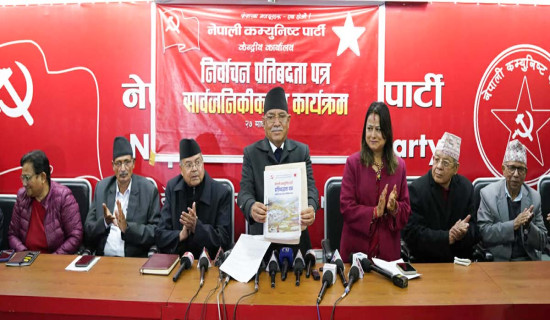
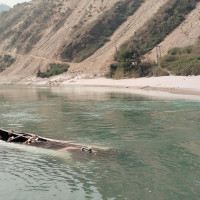
-square-thumb.jpg)
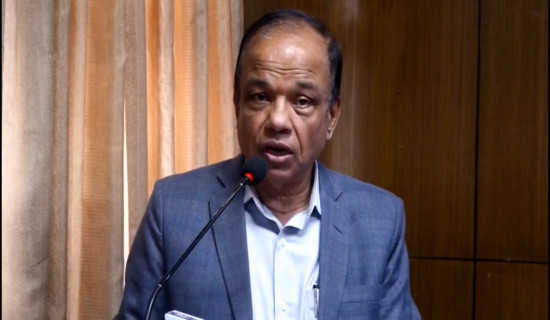
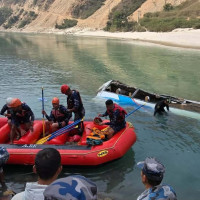
-square-thumb.jpg)

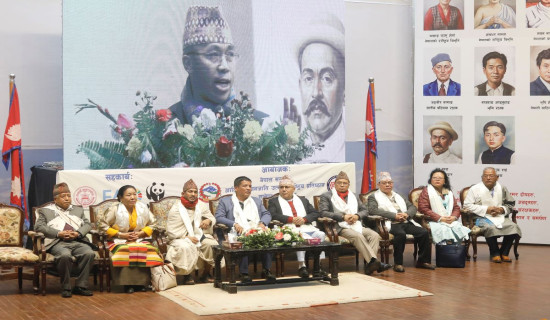
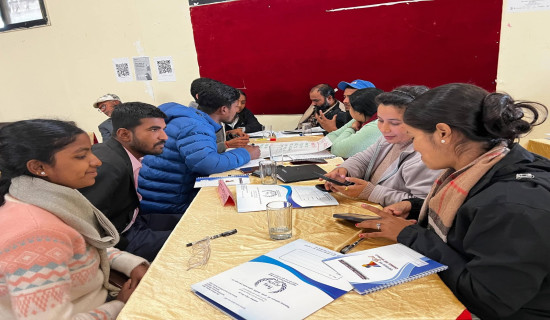

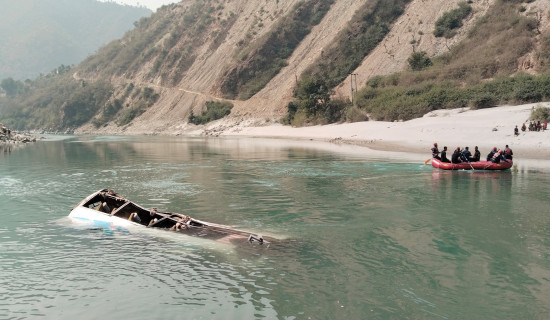

-original-thumb.jpg)